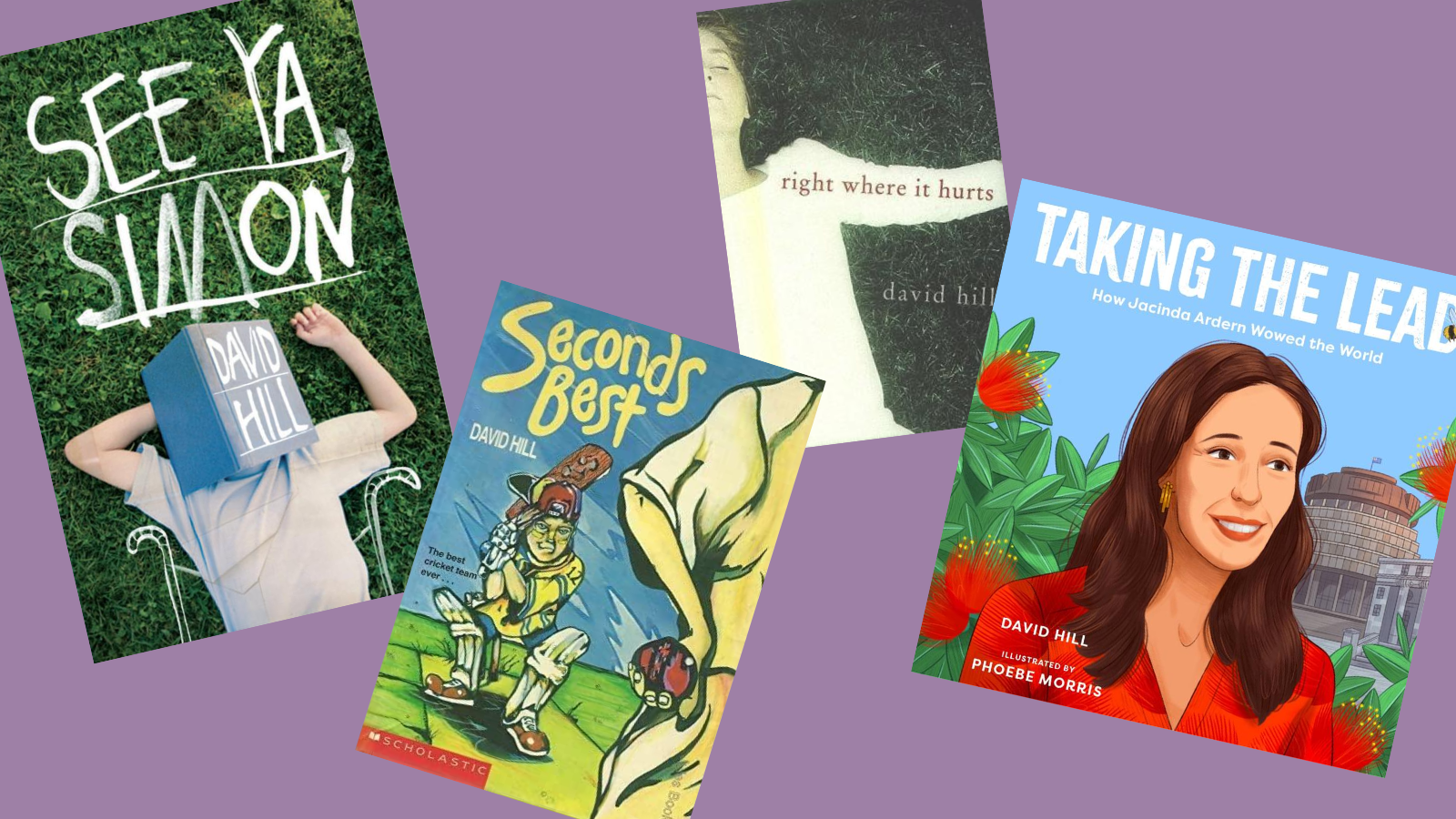We’re always interested to see what David Hill has to say – whether it’s his novels, his picture books, or his reviews. In this latest instalment of The Reckoning, David talks through his experience of the struggle to please everyone… regardless of how much care, thought, research and consultation you put into crafting a story!

A book of mine (half a book, actually: I wrote the text; Phoebe Morris did the delightful artwork) came out earlier this year. It’s had a variety of disapproving, even abusive responses.
I’ll tell you more about that book later, but I’m not too surprised at its reception. A good deal of what I’ve written for younger readers has brought negative feedback, even when the content seemed utterly innocuous. I mentioned in The Sapling a while back how some of my book reviews had sparked accusations of envy and threats of emasculation. Fiction seems to evoke equally rancorous responses.
My first YA novel, See Ya, Simon, featured a boy who dies from Muscular Dystrophy. Letters rebuked me for dumping morbid material on kids, for distressing the families of other MD sufferers. I’d tried to make it clear the protagonist’s arc was one of courage and acceptance; that he inspired and was loved by others, but that didn’t impress complainants.
A decade later, in Right Where It Hurts, I had a bright, brave teenage girl who self-harms when she feels guilty or inadequate. I checked with GPs and paediatricians; worked to indicate that solutions are available. I emphasised the protagonist’s gallantry, gave her a nice boyfriend who, with others, offered her real hope by the story’s end.
This time I was accused of exploiting a shameful issue that should be left hidden, or using it as ‘porn fodder’, because there’s a scene where boy puts his hand on girl’s breast. She instantly swats it away, takes command of the situation, but that wasn’t enough for some readers.
I’ve been criticised for making a boy the captain of a mixed basketball team in a sports novel. When I made a girl the captain of a cricket team in a subsequent story, it was dismissed as fantasy.
I’ve been criticised for making a boy the captain of a mixed basketball team in a sports novel. When I made a girl the captain of a cricket team in a subsequent story, it was dismissed as fantasy.
I wrote an environment-themed novel in which the pupils of a Year 8 class protest against a factory being built beside a wetlands reserve. A letter to the publisher read ‘So you’ve joined the smart-arse PC brigade!’ Where address and signature would normally be, the letter had large red circles in felt pen. A bit scary, that one.
Okay, there’s no predicting what will anger some readers. Maybe it just shows we’re doing our jobs: revealing and provoking, telling it like it is (much as I loathe that expression). Certainly it suggests the book must be selling, though I suspect a lot of correspondents got their copy from the library or from their kid’s school assignment.
And of course there’s no guarantee they’ve read the offending text. I replied to one complainant, asking if they had got to the end, where their objections were addressed. ‘Wouldn’t waste my time,’ was the response.
I’ll pause my grumblings to say that I’d far sooner have adult readers involved in YA and children’s books, rather than uninterested. And to note that it’s always adults who make the complaints and accusations. Maybe young readers don’t feel able? Maybe they don’t feel concerned? But in four decades of trying to work in the genre, I’ve never received a single objection to material or language from my target audience.
I’ve never received a single objection to material or language from my target audience.
I can see why some adults are moved to worry and rebuke. They see kids as inhabiting an innocent, pre-lapsarian Eden; want them to stay there, protected, unsullied, unaware. I suggest that most or all young readers inhabit that world some of the time only. I also wonder if protection blurs rather easily into censorship and repression.
I’ve understood, even sympathised with the thinking behind some complaints. I wrote a play for high schools, in which a boy is so miserable, so tormented, that he contemplates suicide. Nearly every time it’s performed, there are objections to the topic being opened up. I can comprehend, even if I don’t agree.
One of Margaret Mahy’s many wise pronouncements was that ‘the reader completes the story’. True, and sometimes in unexpected ways. Perhaps you can see it as a legitimate part of writer/reader dialogue. And all publicity is good publicity… maybe.
One of Margaret Mahy’s many wise pronouncements was that ‘the reader completes the story’.
I’m pretty sure that in a number of cases, what I’ve written is almost irrelevant to the reaction it brings. The words are just a trigger for someone waiting to vent. Bit of a muddled metaphor there, sorry – but perhaps we do occasionally act as inadvertent therapists.
Which brings me back after one of the decade’s longer digressions to that new book I mentioned. It’s one of a picture book series Penguin Random have published on famous and safely-dead NZers: Ed Hillary, Joan Wiffen, Burt Munro et al. The latest is a bit different, dealing as it does with the very alive Jacinda Kate Laurell Ardern.
I wrote it as a bio of a significant contemporary woman. I clearly failed, because talkback and online voices outed it as ‘brainwashing… political propaganda… left-wing garbage inflicted on our kids’.
I needn’t tell you that the publishers and I tried to avoid any such slant. We changed potentially loaded verbs and adjectives, deleted provocative comparisons and manifestos. But it wasn’t enough. Bad, bad David! But at least it didn’t get turned upside down in bookshops as much as Michelle Duff’s big people’s bio of the PM. I actually feel a bit jealous of that.
But at least it didn’t get turned upside down in bookshops as much as Michelle Duff’s big people’s bio of the PM. I actually feel a bit jealous of that.
There’s not much we can do about such complainants, other than to take the usual care with research and writing; listen to the perspectives and advice that agents and editors can bring; keep trying to put ourselves in the reader’s mind.
And the alternative could be worse. I had a story in one magazine last summer about our daughter’s birth in the UK. It mentioned pagan religion, unplanned pregnancy, alcohol, economic deprivation, national stereotypes. There wasn’t a single complaint. I must be slipping.
Editors’ note: The Reckoning is a regular column where children’s literature experts air their thoughts, views and grievances. They’re not necessarily the views of the editors or our readers. We would love to hear your response to any of The Reckonings – join in the discussion over on Facebook.

David Hill
David Hill is a prolific and highly regarded New Zealand writer, playwright, poet, columnist and critic. Best known for his highly popular and award-winning body of work for young people, ranging from picture books to teenage fiction, his novels have been published all around the world and translated into several languages, and his short stories and plays for young people have been broadcast here and overseas. He reviews books on Radio NZ, and across a wide range of print media.



